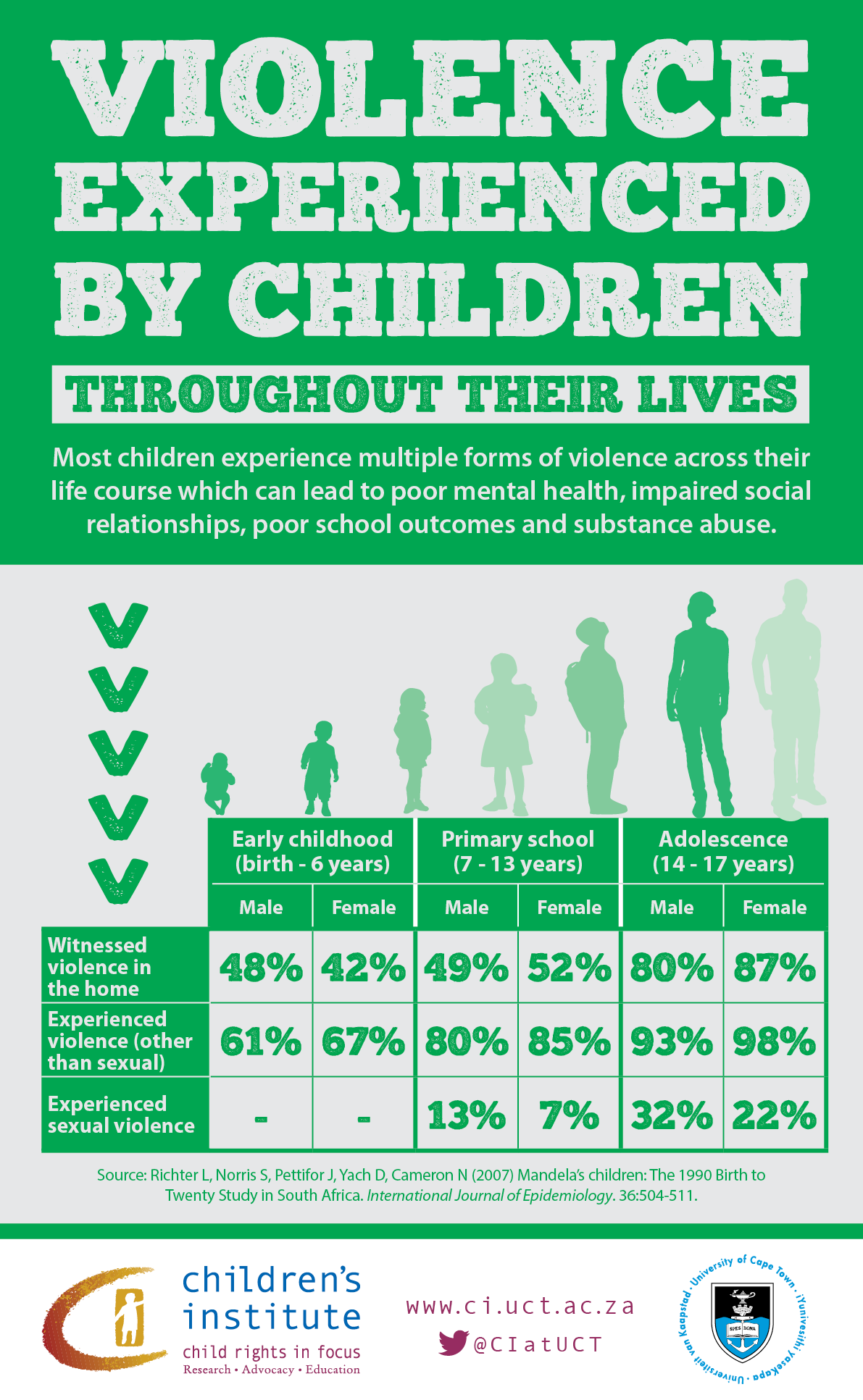Year Published: 2018
Authors: Linda Richter, Shanaaz Mathews, Juliana Kagura and Engelbert Nonterah
Publisher: Children's Institute, University of Cape Town
Suggested Citation: Violence experienced by children throughout their lives (2018) Infographic. Cape Town: Children's Institute, University of Cape Town.

